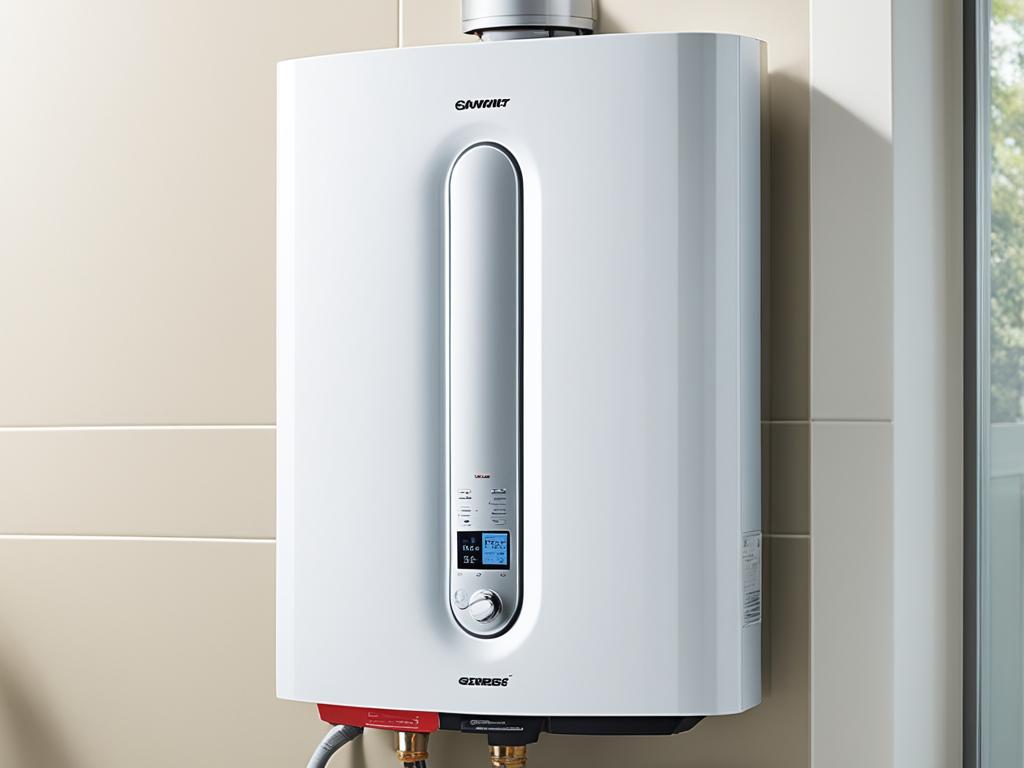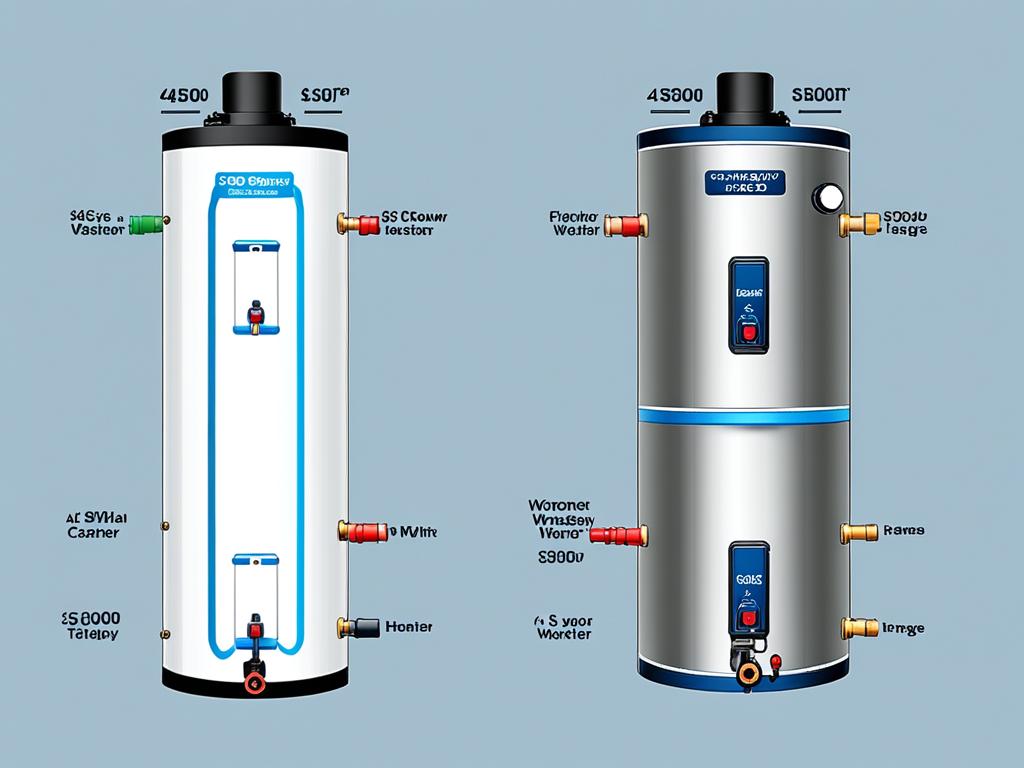When it comes to choosing a water heater for your home, the wattage plays a crucial role in determining its efficiency, performance, and cost. If you’re torn between a 4500 watt water heater and a 5500 watt water heater, it’s important to understand the differences between the two.
Electric water heaters are a popular choice for residential use, and both the 4500 watt and 5500 watt models can be connected to a storage tank. The 4500 watt heater has the capacity to heat 18 to 25 gallons of water per hour, while the 5500 watt heater can heat 25 to 35 gallons per hour.
One key distinction between these two options is the heating speed. The higher wattage of the 5500 watt heater allows for faster heating, which can be beneficial for households with higher hot water demands. However, the increased wattage also puts more strain on the tank and may require a larger electrical circuit.
When making your decision, it’s important to consider factors such as the size of your household, your hot water needs, and your budget. Evaluating these factors will help you determine the best wattage for your specific requirements and ensure you choose the most suitable water heater for your home.
Key Takeaways:
- Choosing the right wattage for your water heater is crucial for efficient performance.
- A 4500 watt water heater heats water at a slower rate compared to a 5500 watt heater.
- The higher wattage of a 5500 watt heater allows for faster heating but puts more strain on the tank.
- Consider factors such as household size, hot water demand, and budget when selecting the wattage of your water heater.
- Both 4500 watt and 5500 watt water heaters are electric and can be connected to a storage tank.
Factors to Consider When Selecting a Water Heater
When it comes to choosing the right water heater for your home, there are several factors that need to be taken into consideration. From the energy source to the style and size, each aspect plays a crucial role in determining the efficiency and effectiveness of your water heater. In this section, we will explore these factors in detail, providing you with a comprehensive water heater buying guide.
Energy Source
One of the first decisions to make when selecting a water heater is the energy source. Electric water heaters, such as the 4500 and 5500 watt models, are popular options for residential use. It is common for homeowners to replace their existing water heater with one that uses the same energy source to simplify installation and maintenance.
Style
The style of the water heater refers to the type of system, whether it is a traditional tank-style heater or a tankless heater. Tank-style heaters store a certain amount of hot water in a reservoir, while tankless heaters heat the water on-demand as it flows through the unit. Each style has its own advantages and disadvantages, so it is important to consider your specific needs and preferences.
Size
The size of the water heater is determined by factors such as the number of people in your household and the desired water temperature. It is crucial to choose a water heater with the appropriate size to ensure an adequate supply of hot water. Oversized heaters can lead to unnecessary energy consumption, while undersized heaters may struggle to meet your hot water demands.
Energy Efficiency
Considering the energy efficiency ratings of water heaters is essential for reducing operating costs and minimizing environmental impact. Look for models that are Energy Star certified, as they meet strict efficiency standards set by the U.S. Environmental Protection Agency. These energy-efficient water heaters not only save you money in the long run but also contribute to a more sustainable future.

Water Heater Comparison
| Electric Water Heater | Gas Water Heater | Tankless Water Heater | |
|---|---|---|---|
| Energy Source | Electricity | Natural Gas or Propane | Electricity or Gas |
| Energy Efficiency | Varies (typically 85-95%) | Varies (typically 60-70%) | High (typically 95-98%) |
| Initial Cost | Low to Moderate | Moderate to High | High |
| Operating Cost | High | Low to Moderate | Low to Moderate |
| Hot Water Capacity | Varies (typically 20-80 gallons) | Varies (typically 30-100 gallons) | Unlimited (on-demand) |
Pros and Cons of 4500 vs 5500 Watt Water Heaters
When choosing a high wattage water heater for your home, it’s essential to consider the pros and cons of different wattage options, such as the 4500 watt and the 5500 watt models.
The 4500 watt water heater is generally more affordable and can have a longer lifespan due to less strain on the tank. This option is ideal for smaller households with lower hot water demands. However, it’s important to note that the 4500 watt heater heats water at a slower rate compared to the 5500 watt model.
On the other hand, the 5500 watt water heater offers a faster heating time, making it suitable for larger households with higher hot water needs. However, this high wattage puts more strain on the tank and may require a larger electrical circuit. It’s crucial to assess your household’s hot water requirements and consider your budget when making a decision.
Additionally, it’s worth considering any warranty implications and electrical code requirements associated with the wattage of the water heater. By carefully weighing the pros and cons of each option, you can choose the best wattage for your specific requirements and ensure efficient, reliable, and cost-effective water heating for your home.
